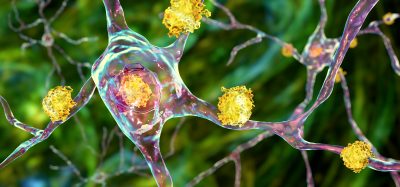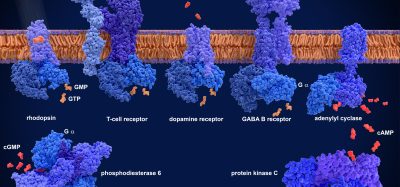Avocado compound targets enzyme critical to leukaemia cell growth
Posted: 30 April 2021 | Victoria Rees (Drug Target Review) | No comments yet
The fat molecule avocatin B, found in avocados, was shown to inhibit VLCAD, an enzyme vital for leukaemia cell metabolism.


A compound in avocados could offer a route to better acute myeloid leukaemia (AML) treatment, according to a new study from the University of Guelph, Canada. The compound targets an enzyme that scientists have identified for the first time as being critical to cancer cell growth.
The team say that leukaemia cells have higher amounts of an enzyme called VLCAD involved in their metabolism. VLCAD was found to be overexpressed and critical to leukaemia cell mitochondrial metabolism in studies in cells. The researchers found that genetic attenuation or pharmacological inhibition of VLCAD using avocatin B, a fat molecule found only in avocados, hindered mitochondrial respiration, resulting in decreased proliferation and growth.
“The cell relies on that pathway to survive,” said lead researcher Dr Paul Spagnuolo. “This is the first time VLCAD has been identified as a target in any cancer.”
His team screened nutraceutical compounds among numerous compounds, looking for any substance that might inhibit the enzyme.
“Lo and behold, the best one was derived from avocado,” said Spagnuolo. “VLCAD can be a good marker to identify patients suitable for this type of therapy. It can also be a marker to measure the activity of the drug. That sets the stage for eventual use of this molecule in human clinical trials.”
Currently, about half of patients over 65 diagnosed with AML enter palliative care. Others undergo chemotherapy, but drug treatments are toxic and can end up killing patients.
“There has been a drive to find less toxic drugs that can be used,” said Spagnuolo. Referring to earlier work using avocatin B for diabetes, Spagnuolo said: “We completed a human study with this as an oral supplement and have been able to show that appreciable amounts are fairly well tolerated.”
The results from the study are published in the journal Blood.
Related topics
Drug Development, Drug Discovery, Drug Leads, Pharmacology
Related conditions
acute myeloid leukaemia (AML)
Related organisations
University of Guelph
Related people
Dr Paul Spagnuolo








